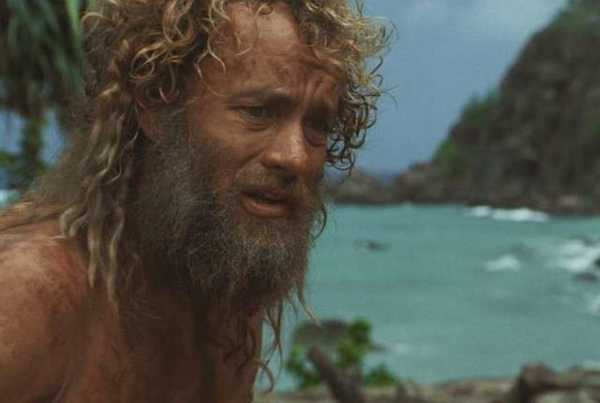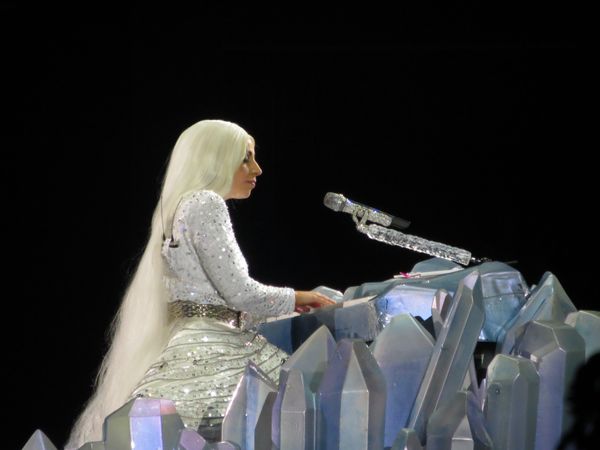Modest Mouse is one of my favorite bands, and each album of theirs is consistently great. Their 2015 album, "Strangers To Ourselves," is one of my favorites. Every song stands up on its own, but the whole album's cohesion is what makes it so enjoyable to experience in one sitting. It's an album that can be about so many things at once, and it's a masterpiece of both lyrical and instrumental songwriting.
The titular first track, "Strangers To Ourselves," is a soft lullaby that sounds like it would fit just as well on the end of the album. In addition to being one of my favorite songs to fall asleep to, "Strangers To Ourselves" gets the listener in the headspace of a Modest Mouse album. Even though the next song, "Lampshades On Fire," is much more energetic, starting the album with "Strangers To Ourselves" tells the listener to pay attention to the album's lyrics because they are just as important and ingenious as the instrumentals.
The curiously named "Pistol (A. Cunanan, Miami, FL. 1996)" sticks out like a sore thumb. A one-off filter on Isaac's vocals gives him a gurgling, demonic timbre. The lyrics are not very Modest Mouse, which is to say that they are repetitive and cliché. Were it not for the song's title, the song would be out-of-place on the album. Lyrics like "I've got my room key in my pocket and you know / I've got a pistol that I need to unload" and "I got a backpack with some clothes that I could wear to work tomorrow / They won't know / that I was up all night not ready for the meeting" sounded like generic sex-lusted rapper innuendos until I learned that Andrew Cunanan was a serial killer who killed five people in Minnesota, Illinois and Florida in various grisly ways before dying by suicide, leaving virtually no clues regarding his motive. "Strangers To Ourselves" is an album about human nature, while "Pistol" represents our unpredictability and the cruelty we are capable of on an individual level.
If "Pistol" is about human cruelty, "Ansel" is about human fragility. It tells the story of the narrator's brother getting lost during a vacation to New Mexico. The song stresses the lack of control we have over our own lives, repeating different variations of "You can't know," "You won't ever really know" and "Would you really want to know?" It ends with "No, you can't know / the last time that you'll ever see another soul / No, you never get to know / No, you don't know." The song is uncomfortable to listen to, because it reminds the listener that you can be alive one moment and be gone the next, and there's nothing that you can do to change that. The only reason I put myself through it is because it's a good song.
I only want to mention "The Ground Walks, with Time in a Box" because of its amazing title and the amazing instrumental breakdown that makes up the last third of the song, which really displays Modest Mouse's mastery of musical structure. That is all.
"Coyotes" features my favorite lyric of the whole album: "Mankind's behavin' like some serial killers / giant ol' monsters afraid of the sharks." This is where the environmental message of the album sunk in for me. "Strangers To Ourselves" insists that we are fearful and fleeting as individuals, but our cumulative species is cold, unfeeling and destructive, not unlike one empathy-lacking A. Cunanan. "The Tortoise and the Tourist" makes sure nobody misses the memo with this verse:
There was this tortoise, its shell was covered with jewels
And had been since time began
It knew the world through all its histories
And the universe and its mysteries
One day it came across a man
The two were talking
The tortoise offered to tell him
About the future and how the universe ran
Oh, the man killed the tortoise, took his shell
And with a song on his lips walked off again
"Be Brave" is the closest thing to a happy song on the album. Even though it has the depressing, pessimistic verse beginning with "Well the Earth doesn't care and we hardly even matter / We're just a bit more piss to push out its full bladder," the rest of the song is filled with chants of "Be brave!" "Be Brave" is the good cop, telling the listener something to the effect of, "Even though humans are destroying the world and nothing matters, you shouldn't give up."
"Of Course We Know" closes the album. Most Modest Mouse songs have an expansive, ethereal reverberating quality, and "Of Course We Know" is no exception. It chugs along like the first track, the drums mimicking the heartbeat of some Lovecraftian beast. Then, they cut out, and a plucky synth begins the introspection. One of the three questions the song puts forth is "What in hell are we here for?" Isaac Brock's iconic lisp repeatedly hisses out, "Of course we just do not know." In the song's final moments, a high-pass-ed chorus proclaims, "Of course we know!" giving a weird sense of closure to the album. It's not like Modest Mouse knows why we're here, but that last line still triggers that little bit of hope in me.
Maybe I'm looking into it too deeply, and maybe I'm trying to turn a depressing album into an optimistic one, but isn't that what humans do? On both an individual- and species-level, we endure mountains of trauma and suffering, yet we still have hope and keep going. Yes, some of us are sociopathic killers, and, yes, we are destroying our planet, and, no, we don't matter in the grand scheme of things. But we all float on, okay?



















